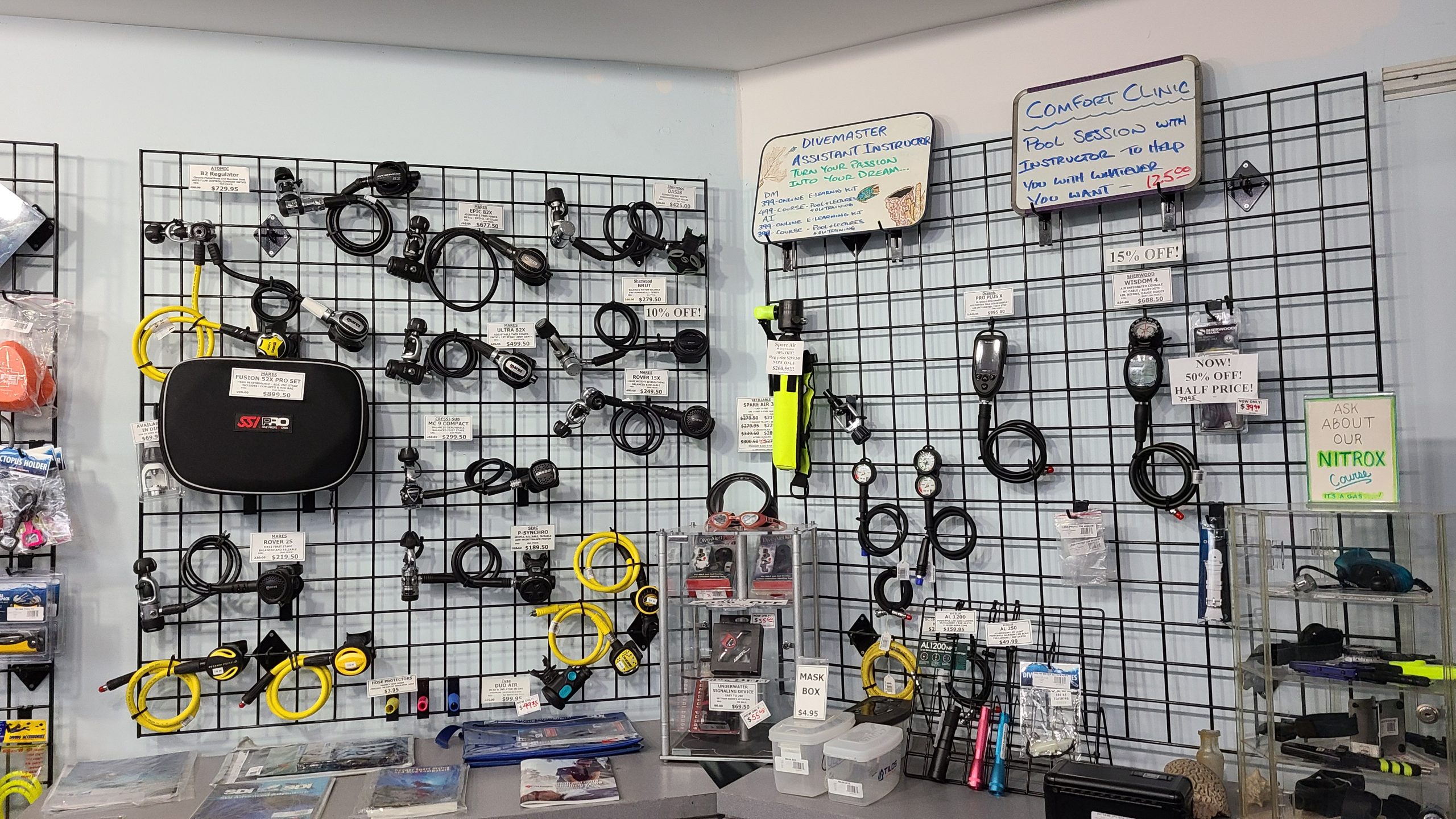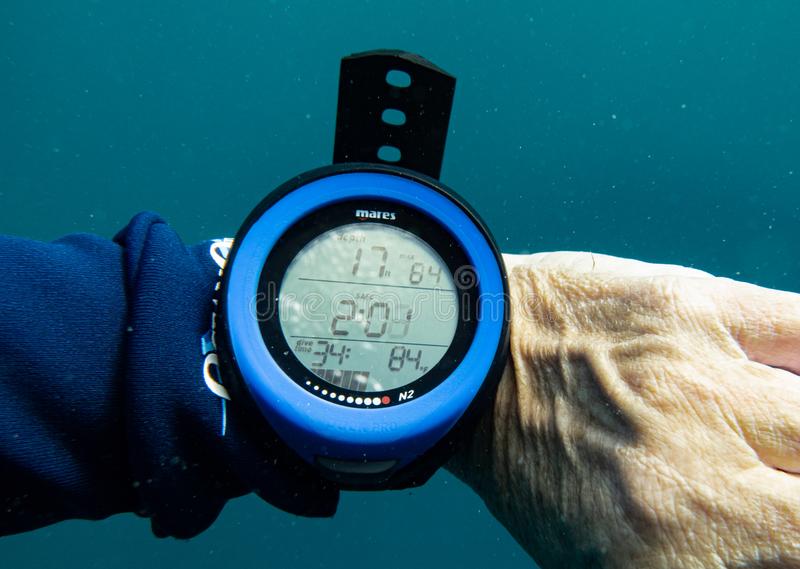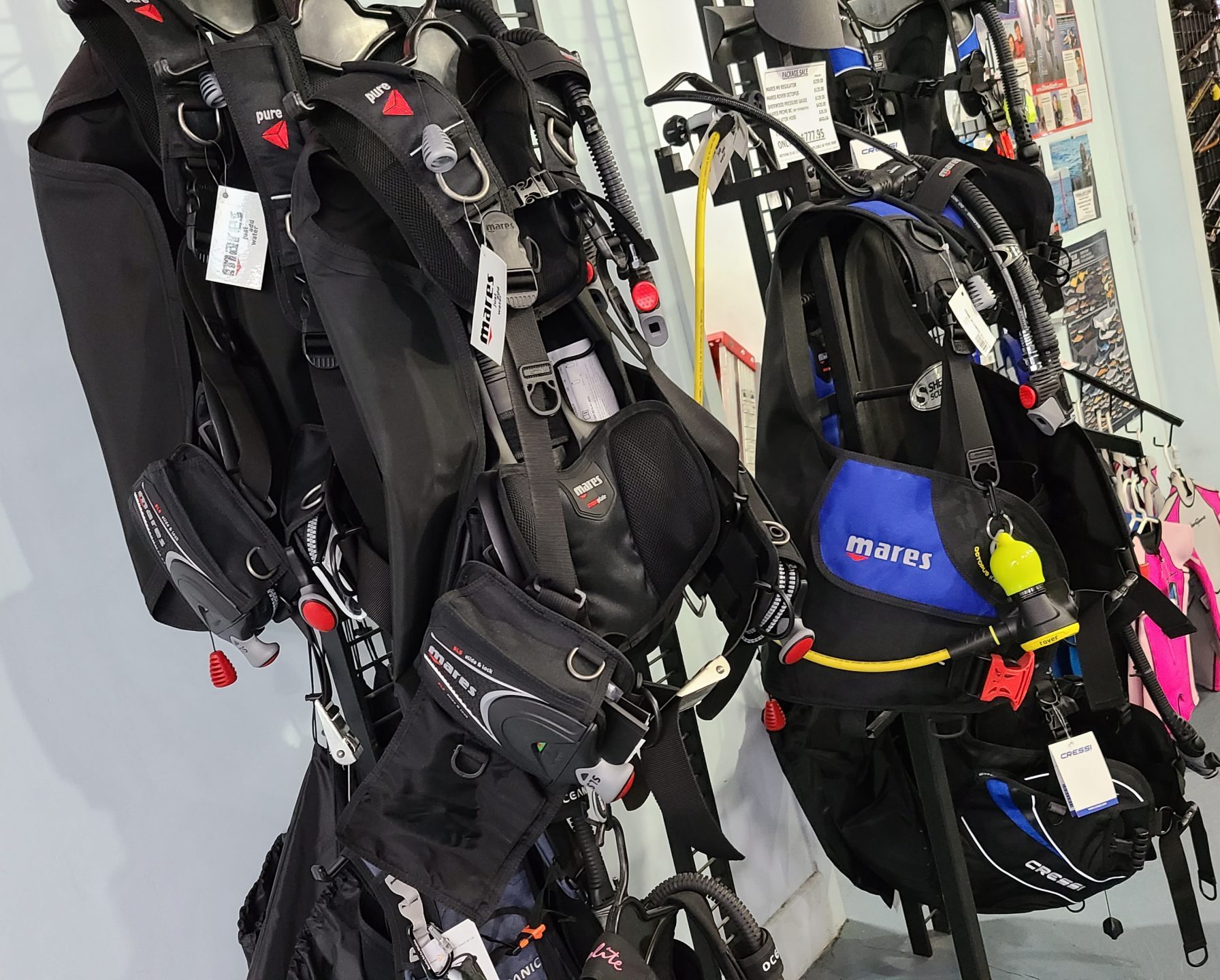A common question heard by dive professionals is, “What scuba gear do I need to buy?” The world has changed a lot in the last twenty years with more people being more eco-conscious about their purchases. As a result, new generations of divers might value experience over material possessions and the idea of owning equipment isn’t as appealing in 300 sq. foot New York apartments as it is in 3,000 sq. foot houses. Fair enough!
There are tons of sources that will explain what dive gear to buy and how much it costs. This particular post is will focus on the philosophy of renting vs. buying, “All Gear Included” vs. “a la carte,” when to do each, and how to go about preparing yourself for this great underwater adventure.
Why Buy Personal Scuba Gear?
Would you buy a coat for cold weather? How about a swimsuit for the beach? I’m shocked whenever I meet divers who do not have their own mask, snorkel, and fins. This dive gear really is the bare minimum to have for yourself. There are divers, though, who prefer not to own their gear. Divers who tend to rent gear are more inclined to experience issues with rented gear, such as a leaky mask, rapid air consumption which shortens their dive, an inability to swim in a current, lost fins, and many others.
Let’s take a look at scuba gear and the pros & cons of renting vs. buying.
Pros of Owning Your Own Scuba Mask
- Proper Sealing. We scuba dive to explore the underwater world. The mask is your window! A mask that does not have a good seal will leak.
- Customization. Your mask can be tailored to your liking using soft neoprene mask straps, reader bifocals, and red color filters for depth.
- Hygiene. People spit in masks to defog when they don’t have any defogging products. If they don’t have their own mask, they more than likely don’t have defogger either. Not to mention, your face, sweat, and snot + other peoples’ faces, sweat, and snot = GROSS.
Pros of Owning Scuba Fins
- Personal Mobility. Scuba fins are your motor to your underwater world. A perfect-fitting motor will help you see more on your dive.
- Energy Conservation. The more you have to kick, the more air you have to use, and the shorter your dive may be. A solid pair of fins will help you move farther with less effort.
- Plus, a full tank weighs approximately 44 lbs. (22 kg). Regulator and BC weight about 10 lbs. (5 kg). Plus you need anywhere between 10-20 lbs. (5-10 kg) to sink. That’s 60-70 lbs. of gear.
Pros of Owning a Scuba Snorkel
- It is a standard for all scuba agencies that every diver wear a snorkel for surface use.
- Whether it’s for shore diving or swimming to the descent line off the boat, you want to make sure you can use free air, and not the air you’re going to use underwater.
- You want a flex snorkel, something that hangs off to the side of your face, not a contour snorkel that will nudge into your regulator.
Why Rent Personal Dive Gear?
This post is not an attempt to encourage you to “Buy NOW!” If you are going through the process of getting certified, your enjoyment of that process will be directly reflected by your level of comfort with the scuba gear you’re using. (Receiving your Open Water certification is a bit more involved than a Discovery course run on an island resort and owning your own gear might reflect that level of responsibility.) Below are some reasons you might choose to rent personal dive gear:
- You weren’t planning on going scuba diving on this trip. It’s something that just popped up and was available, and hey, you have your c-card, so why not?
- A strap has broken on your mask or fin, and you don’t have a replacement. The boat is leaving in ten minutes and you have to make a quick decision!
- Side note: Build yourself a save-a-dive kit, and get yourself a spare mask.
- You are doing a Discover or Resort course, where you are trying Scuba Diving for the first time in a pool and/or in easy conditions.
Life Support Dive Gear
Why Own Life Support Gear?
It takes time to get used to gear. Not only how it works, but the general sense of comfort that it’s all working correctly. The more time you spend with your own gear, the more you intuitively understand it. Much like a car, driving a rental takes getting used to. Why waste time learning a new set of gear all over again?
Below are some of the components of life support scuba gear to consider owning:
Dive Computer
- The Dive Computer’s importance to diver safety and improvement cannot be overstated. Read this post on what to expect and how they work.
Regulator
- The mechanism that is feeding you air should be a high-performance machine and of premium quality.
- Many rental regulators are unbalanced, so they’re harder to breathe the deeper you go. Get a balanced regulator that breathes the same at all depths.
- A big advantage of owning your own regulator is there may be less of a chance of an issue due to overuse or misuse from other divers.
- Troubleshooting can occur immediately and adjustments can be made (or the dive might be aborted), therefore diminishing risk.
Buoyancy Compensator Device (BCD)
Buoyancy control is a skill that is mastered with time. We teach achieving neutral buoyancy in class, but it takes practice and proper weighting to perfect it. Lots of factors affect one’s weighting including muscle density, bone structure, and breathing. Proper weighting takes some time to figure out. Here’s why you might consider owning your own BCD:
- Knowing exactly how much air needed to achieve neutral buoyancy
- Developing a system of personal, quick access using d-rings and clips for your hoses, cameras, gauges, and other accessories.
- A reduction in risk due to overuse or misuse from other divers with rented BCDs.
Is It OK to Rent Life Support Dive Gear?
It might not be the right time to buy all your scuba gear at once. Every diver should calculate the cost/benefit ratio for how they want to assemble their kit. It is always more cost-efficient to have your own. However, for those still unsure if they want to partake in scuba diving on a regular and consistent basis, renting is a viable option. Typically, the rental daily is $25-35 vs. buying ($299 and up). This is more cost feasible than personal items where the split is less forgiving ($10 daily versus $50 and up). There is a work-around to most of these reasons to rent, so when you’re ready, your Scuba Network dive professional will help you game plan for the type of diving you want to do.
Tips for Renting a Dive Computer
- Having a dive computer is integral to diver safety. Renting one is always better than not having one at all. Check out our previous blog post on dive computers in order to get an idea of how important they are.
- If renting a dive computer, be sure to get a tutorial on where all the alerts and indicators are from the shop.
Tips/Benefits of Renting a Regulator
- Renting a regulator means returning it at the end of the day; no need to service it on your own.
- One less thing to pack on your trip.
- The upfront expense is outside of the budget.
Benefits of Renting a BCD
- Too bulky for apartment living (if living in the city).
- Less bags to check when traveling
- The upfront expense is outside of your budget.
Exposure Protection
Some might argue that exposure protection is a personal item, but nevertheless, should be considered when discussing scuba gear. Water extracts heat from the body 25x faster than air. Even the most warmblooded of us will lose core temperature over repeated dives, so exposure protection is certainly part of the conversation.
Why Buy Your Own Exposure Protection?
For Wetsuits
-
- Many rentals are shorties, that leave your shins and forearms exposed to jellyfish stings.
- Keep yourself warmer for a longer amount of time due to lack of repeated use.
- (As an added bonus, ask a pro diver to tell the joke about the 2 types of divers with wetsuits.)
For Drysuits
In the event that you are diving somewhere too cold for a 7mm wetsuit, like Iceland’s famous Silfra fissure dive, California or Wreck Valley in New York/New Jersey, a dry suit will keep you insulated from the cold.
-
- Drysuits rely on seals to keep water out. Improper fitting seals can lead to leaks, which are dangerous.
- Drysuits are considered an enhanced piece of equipment. Make sure you’re familiar with it.
- Less chance of a problem due to overuse or misuse from other divers who previously rented a drysuit.
Should You Rent Exposure Protection for Scuba Diving?
Like anything else, there are pros and cons to buying vs. renting. Below are the pros of renting exposure protection while diving:
-
- Lighter traveling
- A wet wetsuit can easily add 5-10 lbs. to your luggage coming back if it rains on your last day and you can’t dry it.
- Storage conservation at home
- One-time trips/dives (the Silfra fissure, for example)
- Trial run with equipment before purchasing
- Lighter traveling
Tanks and Weights
Why Buy My Own Tanks and Weights?
If you live in an area where local diving is accessible and you want to dive there frequently, having your own tanks and weights is an easy way to be sure you can hit the ocean this weekend. All that’s required is to get yourself a fill and it’s one less thing to worry about on the way to the dive site/dive boat.
Why Rent Tanks and Weights?
Most dive operations that require a flight to the destination have their own tanks and weights. Flying with scuba tanks is impractical and is normally included in the cost of the boat ticket. The only time you should ever be charged for weights by a shop is if you lose one on a dive.

Conclusion
At Scuba Network we understand the need to speak with a professional. Our instructors are available to chat with you 7 days a week from 12-7 pm. Set up an appointment to chat with us via Zoom or Google Meets and we will gladly talk you through all your options to make your dives fun and safe!











